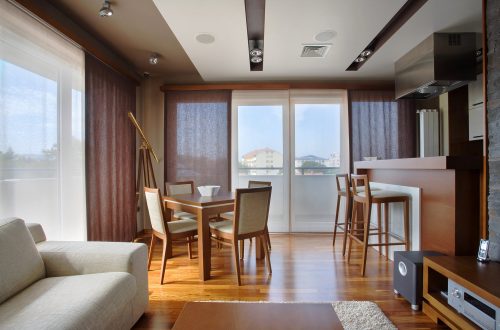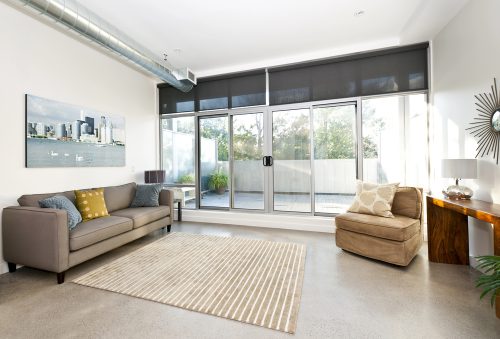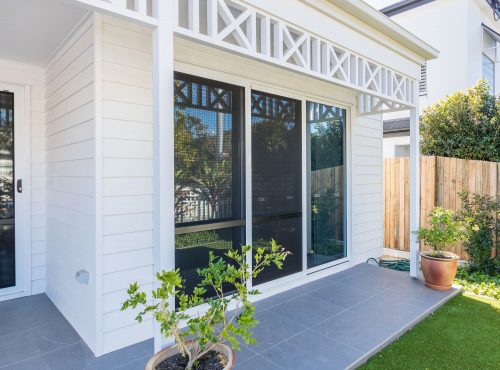Selecting the right glass thickness for windows is an important decision that affects more than just the appearance of your home. The thickness of the glass of a window plays a role in insulation, noise reduction, security, and energy efficiency.
With various glazing types available, homeowners need to understand how different glass thicknesses impact performance and comfort.
Whether you’re looking to buy a glass window for a renovation or a new build, understanding the options ensures you get the best solution for your needs. At Perth Window and Door Replacement Company, we provide expert advice and high-quality window replacements tailored to your home’s requirements.
Glass of a Window Explained
The glass of a window plays a crucial role in a home’s insulation, security, and overall comfort. It’s more than just a clear barrier—it affects energy efficiency, noise reduction, and safety. Choosing the right glass ensures your home stays comfortable while reducing energy costs.
There are different types of window glass, each suited to specific needs:
- Float Glass – The standard option, offering basic clarity and strength for general home use.
- Safety Glass – Includes toughened and laminated glass, designed to minimise the risk of injury if broken.
- Energy Efficient Glass – Helps improve insulation, reducing heat transfer and lowering energy consumption.
Homes looking to improve insulation should consider energy efficient windows that use double or triple glazing combined with energy efficient glass. These options help maintain indoor temperatures, leading to a more sustainable and cost-effective home.
What Different Glass Thickness for Windows Means
Glass thickness varies depending on the type of window and its intended function. Standard glass thickness for windows typically ranges from 3mm to 12mm, but thicker options may be necessary in certain situations.
- 3mm–4mm Glass – Common for standard windows in low-traffic areas.
- 5mm–6mm Glass – Provides added durability, often used in double-glazed units.
- 8mm–12mm Glass – Thicker options used for soundproofing, security, and energy efficiency.
Opting for thick glass for windows can significantly reduce outside noise, improve insulation, and enhance security. Homeowners living near busy roads or in areas prone to extreme weather may benefit from upgrading to thicker glass.
Glass Window Glazing Types
Beyond thickness, glazing types play a major role in a window’s thermal insulation, energy efficiency, and noise reduction. The way glass is separated in a window impacts how well it retains heat in winter and blocks heat gain in summer.
Homeowners looking to maximise comfort and energy savings should carefully consider different glazing types when selecting new windows.
The three main types of glazed windows include:
- Single Glazing – A single pane of glass that allows maximum natural light but provides minimal thermal insulation and noise reduction.
- Double Glazing – An insulated glass unit (IGU) consisting of two panes of glass separated by an air or gas-filled space, improving heat gain control and soundproofing.
- Triple Glazing – Three layers of glass separated by insulating gaps, providing superior thermal insulation and energy efficiency, ideal for extreme climates.
For homeowners looking to improve comfort and reduce energy costs, double glazing with energy efficient glass offers an excellent balance of insulation and natural light, making it a popular choice for modern homes.
How to Choose the Right Glass Thickness
Selecting the right glass thickness for windows depends on several factors:
Climate
Homes in Perth experience hot summers and cool winters, making double glazing with thicker glass a practical choice for year-round comfort. Thicker glass helps reduce heat transfer, keeping interiors cooler in summer and warmer in winter.
Noise Reduction
For homeowners living in high-traffic areas or near airports, thick glass for windows combined with double glazing can dramatically reduce noise pollution. A laminated glass window provides additional soundproofing benefits.
Security Needs
Stronger glass helps protect against break-ins and accidental damage. Laminated glass and toughened glass provide an added layer of security, making them suitable for ground-floor windows and entry doors.
Energy Efficiency
Using the right glazing types and glass thickness helps reduce reliance on heating and cooling systems. Thicker glass with double glazing improves insulation, leading to lower energy bills and a more sustainable home.
If you’re unsure which option is best for your home, consulting an expert can help you choose the most suitable glass window solution.
Find the Right Glass Thickness for Your Windows with Perth Window and Door
Choosing the right glass thickness for windows ensures your home is comfortable, secure, and energy-efficient. Whether you need thick glass for windows for soundproofing or double glazing for insulation, selecting the right option makes all the difference.
At Perth Window and Door Replacement Company, we help homeowners buy a glass window solution suited to their needs. Contact us today to explore high-quality window solutions designed for Perth’s unique climate and lifestyle.



